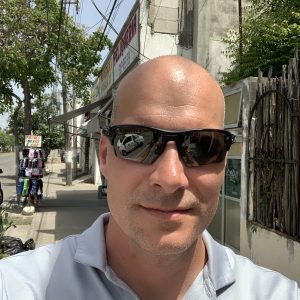The summer of 2024 is slowly but surely coming to an end and a new school year is looming for many young Americans. Transitioning back to class can be stressful for children and parents alike. But anxiety symptoms that persist beyond the first few weeks of school and that seem excessive may require consultation with an expert, says psychologist Erika Chiappini, who specializes in the treatment of childhood anxiety and related disorders at Johns Hopkins Children’s Center.
Anxiety and depression are rising among America’s youth and—whether teenagers personally suffer from these conditions or not—a troubling 70 percent see them as a major problem among their peers.
Teenagers suffering from anxiety, depression, or other mental health conditions frequently resort to substance misuse to alleviate their symptoms—often with devastating consequences. When young people struggle with substance misuse or addiction and require treatment, there are usually parental concerns about missing time at school. Parents worry their children will fall behind even more academically if they are sent to a residential treatment center. On the other hand, continuing at a traditional school can mean more exposure to peer pressure and substance use in a place with limited or non-existent treatment resources.
A BETTER OPTION
“In most cases, parents have explored what seemed less drastic steps or lower levels of care, such as outpatient therapy or maybe even an intensive outpatient program,” says Turning Winds admissions director Eric Loesch. “If they end up calling us that usually means those attempts were unsuccessful.”
As the summer ends, many parents are becoming more and more aware that it didn’t exactly go as planned. “Maybe, it got ruined because of the kid’s behavior,” says Loesch. “Maybe there was some kind of legal trouble. Now, as the school year approaches, things aren’t getting better—they are actually getting worse.”
Sometimes parents think now that the school year is starting, it might be a good idea to wait and see what happens but often that just drags out the problem. If you are a parent worried about your struggling child, choose school and treatment!
At Turning Winds, your child will catch up academically while also receiving the necessary clinical treatment services. As a residential treatment center with a strong academic program, Turning Winds offers a full continuum of care for teens with mental health issues while they also progress in their school curriculum. Our clients achieve success through a combination of therapeutic and educational approaches that provide the best possible outcomes.
Our teachers are fully credentialed and have extensive training and experience under their belts. One of them is science teacher Cathy Miller. An important question on the minds of many parents is whether their kids will be able to return to the same school after they are finished with treatment. “One of the most important parts of my job is to make sure that when students are returning home, and they’re going back to the same school they were in before or maybe even a different school, that it is a seamless transition.”
CLOSING THE GAPS
The first thing the team does is look at the transcripts of each new client. “Most of our students come in with gaps in their education, simply because they haven’t been consistent in their school attendance,” explains Miller. “We identify those gaps and immediately start filling in the holes.”
Often, that means doing a lot of catch-up work, especially in math and science. “Toward the end of their time here, we work closely with the parents to make sure they are ready for wherever they’re going back to when they transition out,” says Miller. “We often also talk with the school they’re moving to, giving them everything they need to be prepared.”
Our goal is to make sure every student gets the education and support they need for success. We work closely with the counseling departments in every student’s previous school to fill in any remaining gaps in their current educational path.
At Turning Winds, we have taken the best elements of care from wilderness therapy, therapeutic boarding schools, and inpatient treatment to create a one-of-a-kind residential treatment center.
Over the past two decades, Turning Winds has been able to help many families overcome what seemed impossible odds. Our mission is to rescue teens from crises, renew their belief in their potential, reunite them with their families, and put them on a sustainable path to success.
Contact us online for more information, or call us at 800-845-1380. If your call isn’t answered personally, one of us will get back to you as soon as possible.









